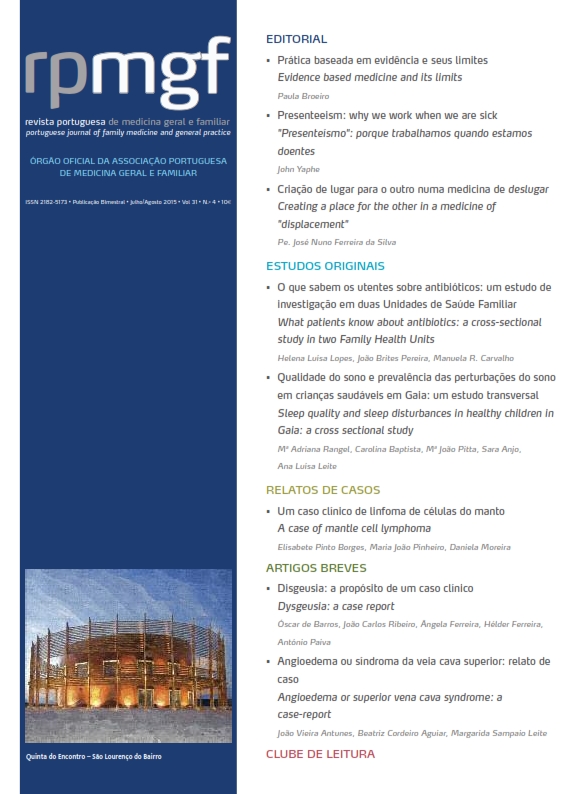Angioedema or superior vena cava syndrome: a case-report
DOI:
https://doi.org/10.32385/rpmgf.v31i4.11556Keywords:
Lymphoma, Angioedema, Superior vena cava syndromeAbstract
Introduction: The family doctor often sees signs and symptoms of an apparently benign nature that may turn out to be part of more severe disease. This case presents the common finding of facial edema that was interpreted as angioedema, when the underlying disease was the superior vena cava syndrome (SVCS). Case description: A 61-year-old man consulted his family doctor because of an episode of syncope. He was sent to the hospital emergency department, where vasovagal syncope was diagnosed and a microcytic hypochromic anemia was found. Subsequent investigations revealed iron deficiency anemia and a gastric antral ulcer. Three months later, he returned to the Family Health Unit with facial edema and was treated with an antihistamine. Because of persistence of his complaints, he consulted at the hospital emergency department, where angioedema was diagnosed. One month later, he was admitted to the hospital for treatment of gastrointestinal bleeding from the gastric ulcer. He later returned to the hospital emergency department with respiratory symptoms. A chest radiograph revealed enlargement of the superior mediastinum. Following admission to hospital, the diagnosis of a B-cell lymphoma was made after an incisional biopsy of an enlarged cervical lymph node. Comment: This case illustrates the diagnostic challenge presented by lymphoproliferative disorders. Distinguishing between angioedema and superior vena cava syndrome was a central challenge. Cases of diagnostic confusion between these two entities have been described in the literature. Questions related to the complexity of clinical presentations and the difficulties experienced by the family doctor in the management of this case are discussed.Downloads
Downloads
Published
Issue
Section
License
The authors will assign to the RPMGF the sole right to publish and distribute the content of the manuscript specified in this declaration via physical, electronic, broadcasting or any other medium that may come into existence. They also grant the RPMGF the right to use and exploit this manuscript, in particular by assigning, selling or licensing its content. This permission is permanent and takes effect from the moment the manuscript is submitted, has the maximum duration allowed by applicable Portuguese or international law and is of worldwide scope. The authors further declare that this assignment is made free of charge. If the RPMGF informs the authors that it is not going to publish their manuscript, the exclusive assignment of rights ceases forthwith.
The authors authorise the RPMGF (or any entity it may appoint) to act on their behalf when it believes that copyright may have been infringed.





